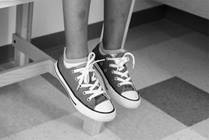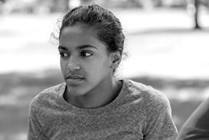Search Results
Viewing: 391-400 of 1460 | All
Article
Birth Control: Progestin-Only Contraceptive Pills
Progestin-only contraceptive pills are a form of daily birth control that contains the hormone progestin. This method does not contain estrogen. Progestin is much like a hormone made naturally in your body.

Condition
Herpes Simplex Virus
Herpes simplex virus (HSV) is a very contagious virus that causes infections. There are two types of HSV. One type (HSV-1) usually causes sores around the lips or inside the mouth that are sometimes called fever blisters or cold sores. The other type (HSV-2) usually causes sores on the genitals.
Article
Water Soluble Fiber
Water soluble fiber is commonly used with CCPR medical regimens. This fiber will help maintain a good balance between stool frequency and consistency to help your child be continent.
News
MEDIA ADVISORY: DNA -- The Key Molecule of Life: Hands-On Workshop for the Public
WHAT: DNA -- The Key Molecule of Life: ‘Hands-On’ Workshop for the Public WHEN: Saturday, April 24, 2010 at 1:30 p.m. WHERE: Columbus Metropolitan Library 1st Floor Homework Help Center 96 S. Grant Ave.
Volar Plate Injuries
The volar plate is a thick ligament that connects two bones in the finger. A volar plate injury is commonly called a jammed finger or sprain. This happens when the finger is bent backward too far (hyperextended). These injuries can also lead to a fracture (break) called an avulsion fracture.
Article
Safe Storage
Lockboxes can be used to safely store dangerous items like guns (firearms) and medicines.
Article
Microarray Analysis Test
The microarray analysis test is used to find out if your child has a medical condition caused by a missing or extra piece of chromosome material. This test is also known by several other names, such as chromosomal microarray, whole genome microarray, array comparative genomic hybridization or SNP microarray.

Condition
H. Pylori
H. pylori, also known as Helicobacter pylori, is a bacteria that infects the stomach. Although common, this infection rarely shows any signs or symptoms.
Article
Gynecologic Laparoscopy
This Helping Hand™ is about the gynecologic laparoscopy procedure and why it's done.
Article
Nasopharyngoscopic Evaluation of Velopharyngeal Closure During Speech
Nasopharyngoscopy is a test that involves viewing the back of the nose and throat. This test uses a small tube-light camera, called an endoscope, to view this area while the child speaks.
